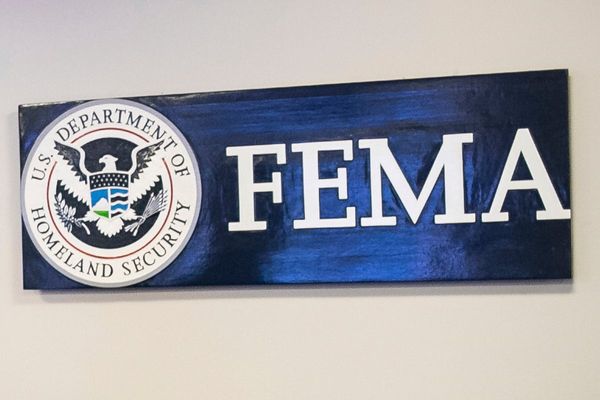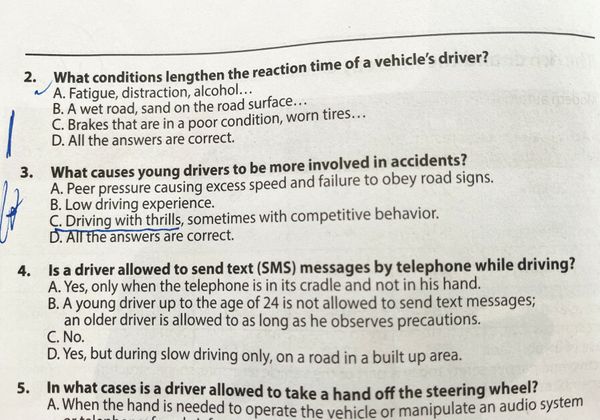
“Do you know where you’re going to?” asks Diana Ross in the theme song from Mahogany. Travelers on Israeli roads might add an extra question: Do you recognize your destination according to the spelling on the road sign?
Spelling on the country’s highways and byways has been a law unto itself. But that could change if Blue and White MK Eitan Ginzburg has his way. As first published by The Jerusalem Post’s Gil Hoffman, the Knesset last week voted 33-0 to advance the preliminary reading of a bill that would require uniform, correct spellings in English for street signs.
“This bill is simply intended to bring about order and bring about a uniform database of names, respect the languages and take a small step forward on the path to being an organized country,” Ginzburg told the plenum before the vote.
The bill would entrust the Academy of the Hebrew Language with determining the spelling and keeping the database of names of cities and streets in Hebrew, English and Arabic, and publishing the list online regularly. Local authorities would be given five years to update and correct their signs, once the bill is passed into law. But don’t hold your breath. This is not the first time such a measure has been proposed and ended up on the road to nowhere.
In 2009, then-transportation minister Israel Katz declared his intention to introduce uniformity and change the English place names on road signs to better reflect their Hebrew pronunciation. This was perceived at the time to be partly politically motivated to give greater emphasis to the Hebrew names rather than the Arabic ones. Hence it’s a good sign that last week’s bill was supported by Ra’am (United Arab List) leader Mansour Abbas, who presided over the debate as deputy Knesset speaker and said it’s about time to have correct names on signs in Arabic as well.

The proposed legislation caught the attention of i24’s Calev Ben-David, who invited me to discuss it on his The Rundown program last Thursday. Illustrating some of the problems, I reflected that the i24 studio is located in Jaffa, aka Yafo in Hebrew and Yafa in Arabic, while I was talking via Zoom from my home in Jerusalem, Yerushalayim (or al-Quds in Arabic). In many cases, the political implications involved in determining which name to use in English could lead to more than road rage.
Both Ben-David and I immediately thought of probably the most (in)famous example of an Israeli road sign that could drive non-natives to distraction. For a while, the signs on the highway to the country’s main airport pointed cryptically in the direction of “Natbag” – a Hebrew acronym for Nemal Teufa Ben-Gurion. All Israelis familiarly refer to Ben-Gurion Airport as Natbag but the reference is way too obscure for the average tourist to find useful. Sometimes you just have to spell it out and avoid the pitfalls of the Israeli predilection for acronyms and abbreviations.
Many years ago, when I served on a small army base in Tiberias, or Tiveriya, on the shores of the Sea of Galilee (Kinneret), a former teacher and her husband from England came for a visit. I started getting worried when they were uncharacteristically late but it turned out they had been taken for a ride by a confusing sign. As they approached the city in their rented car, they had noticed many signs for “Egged.” Assuming this must be a place of historic or archaeological importance, they followed the signs – and found themselves in the Egged Bus Station.
We’re on the road to somewhere, but is it Beersheba or Be’er Sheva? And then there’s Nazrat Illit, or Upper Nazareth, a mainly Jewish town that recently changed its name to Nof Hagalil (View of the Galilee) to distinguish it from the better known and older Nazareth.
My late aunt used to say she got a thrill seeing a sign informing her she was on the road to Armageddon. That would be Megiddo in Hebrew.
And while we’re on the subject of road signs to hell being paved with good intentions, the capital is blessed with biblical references that don’t always sound inviting: Gei Ben-Hinnom, literally the “Valley of the son of Hinnom,” became Gehinnom, or “hell.” Emek Refaim, or Emeq Rephaim, or however you want to transliterate it, is the chic main street of the German Colony even though the name literally translates into Valley of the Ghosts (and appears in many English-language biblical translations as the Valley of the Giants.)
Adding to the confusion, different neighborhoods often have more than one name, a reflection of the city’s complex history. Take, for example, Givat Shapira, a neighborhood named after the late minister Haim-Moshe Shapira, a signatory on Israel’s Declaration of Independence. Despite the official signs and names, everyone knows it as Hagivah Hatzarfatit, which literally means French Hill. Whether the name comes from the former French monastery at the site or is a misnomer for Field Marshal Lord John French, a reminder of the British forces who ousted the Ottomans during the First World War, is a matter of speculation.
Sometimes the names of famous people unintentionally cause confusion. Lincoln Street is named for the late American president, but he might be spinning in his grave every time Hebrew-speakers pronounce it “Lin-co-len,” the only way they know how. Don’t expect a taxi driver to understand you if you pronounce the name correctly. The signs stating “Begin North” and “Begin South” could leave you wondering where it ends, unless you take into account that the route is named after the late prime minister Menachem Begin. Incidentally, thinking of Jerusalem in terms of North and South makes much more sense than sticking to the political categorization of East and West. Many “east Jerusalem” neighborhoods are not in the eastern part of the city from a geographical point of view.
Israel being Israel, everything is political – including road sign legislation. There’s a war of words as well as spelling. For the record, I prefer Judea and Samaria, the biblical terms, rather than the West Bank reflecting Jordan’s 19-year control of the area that ended in 1967.
A few days after our conversation, Ben-David shared a copy of an envelope with a funny-peculiar mistake in the address. The recipient obviously lives on Caleb Ben Yefuneh Street in Kiryat Arba (named for the biblical character after whom Ben-David took his first name.) Taking things too literally, the street name on the envelope read: A dog will be evacuated. This is apparently an unfortunate computer-generated translation of “Kelev ben yefuneh” as written words rather than a name.
While I kept my eyes on road signs this week, I nearly missed a different story. Interior Minister Ayelet Shaked announced that Druze-majority Maghar will soon enjoy city status. That’s good news for the residents of the community near Safed, Tsfat, Tzfat, or whatever, who include MK Abbas, in the Muslim minority. Any changes to the signs as a result of the upgrade, however, are unlikely to reflect the way the name actually sounds. The “gh” in this case is the commonly accepted transliteration of the rolling “r” sound in Arabic.
Before getting too excited about the final results of the road sign legislation, assuming it ultimately passes, keep in mind that the Hebrew Language Academy, which will have a major say in the implementation, is bound by its own rules and the internationally respected standards of transliteration. Even minding its Ps and Qs, the end result could still be Petah Tiqwa instead of Petah (or Petach) Tikvah. There might still be crossed words and meanings at crossroads.
The discussion on the translations and transliterations could be a sign of the times: Hopefully, a sign that tourism is picking up after the pandemic-induced near standstill.
Tourists have the right not to get lost in translation. We might not be there yet, but the road sign legislation is pointing in the right direction.
liat@jpost.com










